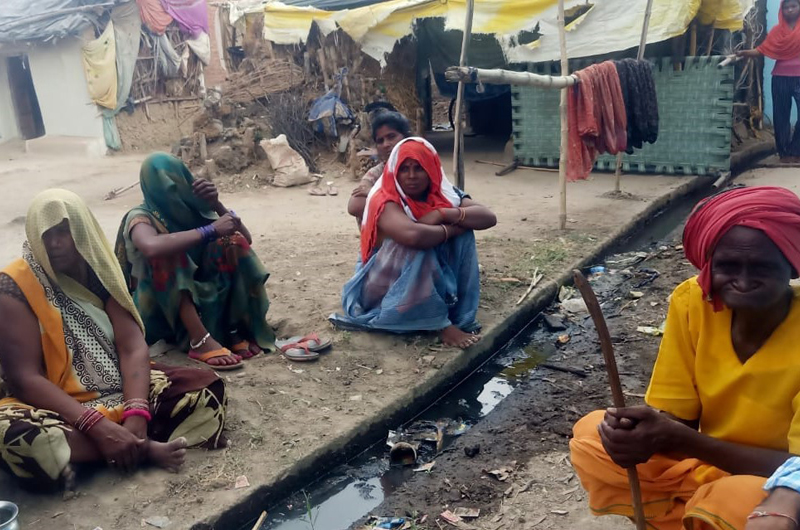Bharat Dogra has the heart-wrenching story of an abjectly poor family who lost their main breadwinner to exploitative work conditions and was cheated of even the meagre recompense promised for the back-breaking labour. It is for the Labour Department to provide prompt help to victims of this type of injustice so that such tragedies can be prevented, he says
On an extremely hot May afternoon near the Gwalior Railway Station, a woman with three small children stood weeping beside a rickshaw carrying a man who appeared to have collapsed. Passers-by confirmed that the man had died, making the woman and children wail louder. Enquiries revealed that the deceased man was Om Prakash, the woman Premkali’s husband, a migrant brick kiln worker from Banda District in Uttar Pradesh who had fallen seriously ill while working at the kiln. When his condition deteriorated, the kiln had owners asked him to leave, not wanting him to die at the worksite.
Despite having no help, Premkali somehow arranged a rickshaw to reach Gwalior Station. But she had no money to arrange for her husband’s body to be taken to their native Mohatra Village in Naraini Block. The stationmaster and a few police personnel kindly arranged an ambulance for transport, and also gave Premkali a little money.
About two weeks later, this writer visited the Dalit hamlet of Mohatra. The people there are either landless, or own very tiny plots. They have very few livelihood options. And even when the villagers do get some daily wage jobs, the extremely hot weather makes them exhausted. Getting MNREGA work or work under rural employment schemes is very rare. They therefore accept offers of lump sum payment from labour contractors and migrate to various places to work in brick kilns.
Premkali said in October last year, her husband had accepted an advance of Rs 5000 and their family of five had left for Gwalior. She said living conditions at the kiln were very poor, and they were made to toil day and night. According to information provided by various workers, the going rate is Rs 650 for 1000 bricks, and by working day and night, a couple can hope to earn around Rs 1000 per day. But amounts advanced towards food, medicine, and the lump sum initial payment are deducted before they are paid. Even accounting for all the deductions, Premkali should have received a significant sum of money when she left, but she was told that the accounts showed that they in fact owed money to the kiln owners.
When Om Prakash fell ill, a message was sent to his mother to arrange for money to be given to the kiln owner, so that her son could return home. She tried to raise funds from other villagers, but couldn’t do so because her neighbours were also in dire financial straits. That’s how Premkali and her three young children came to be stranded without any money.
Earlier, Om Prakash’s brother Lav-kush, who had been working at a brick kiln for several years, had contracted tuberculosis and feels it is an occupational hazard. The villagers say people from most of the Dalit households here and in neighbouring villages like Kairi and Jwahra migrate to brick kilns, and their life becomes an agonising grind of making bricks throughout their waking hours.

Meanwhile, Premkali has hardly any means to bring up three children, all of whom are weak and malnourished. The labour contractor has reportedly given her a small amount of money, and promised her some further financial help if she refrains from making any complaint. But whatever funds he provides can only be very inadequate for the family’s needs.
Vidya Dham Samiti, a voluntary organisation, is helping the family within its limited capacity. It has also taken up other such cases of extreme injustice. One relates to a brick kiln worker from Neebhi Village who was not paid dues of over Rs 200,000 and committed suicide when his efforts to recover the money failed. It is for the Labour Department to provide prompt help to victims of this type of injustice, so that such tragedies can be prevented.
(The writer is a senior freelance journalist and author who has been associated with several social movements and initiatives.
He lives in Delhi.)



 from Webdoux
from Webdoux